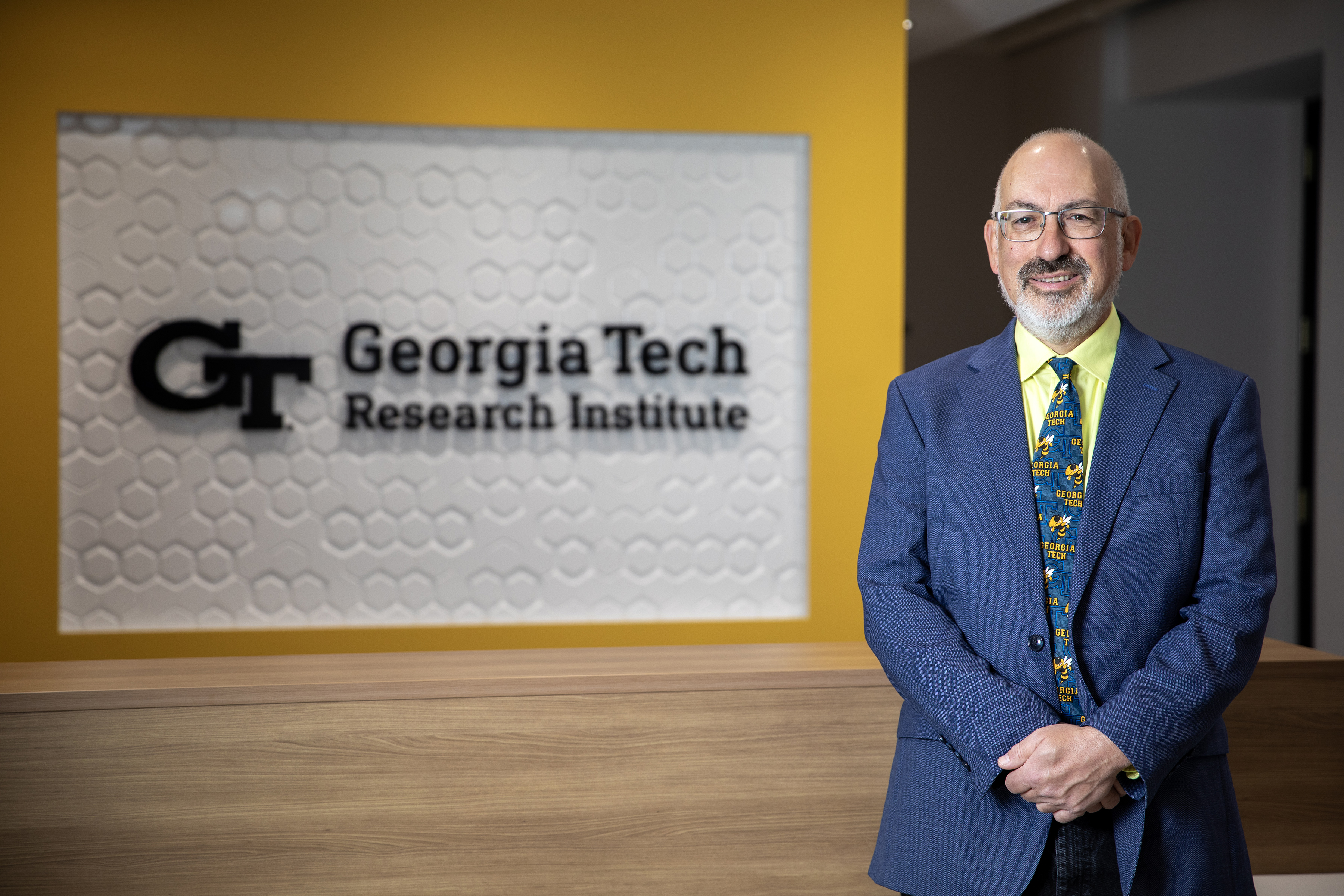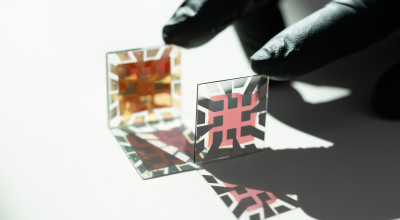
A cybersecurity researcher with more than 25 years of industry and government experience – including at the National Science Foundation (NSF) and Defense Advanced Research Projects Agency (DARPA) – has joined the Institute for Cybersecurity and Resilient Infrastructure Studies (ICARIS), a collaboration between Georgia Tech and the Pacific Northwest National Laboratory (PNNL).

To be based at the Georgia Tech Research Institute (GTRI), Jeremy Epstein will serve as co-director of ICARIS, collaborating with PNNL co-director Danny Herrera to identify and develop ways to confront threats against the nation’s critical infrastructure. He will also serve as an adjunct professor in Georgia Tech’s School of Cybersecurity and Privacy, which is partnering with GTRI.
ICARIS was formed to serve as the leading national resource for delivering the technologies, testbeds, and talent necessary to serve the nation’s critical infrastructure.
“Anyone using a mobile phone or laptop computer, watching television, driving a modern vehicle, traveling on a highway controlled by traffic signals – or using electricity for most any purpose – is subject to cybersecurity and privacy issues,” said Epstein. “Everything is now computer-controlled, and the security opportunities are there for deliberate adversaries at the nation-state level or malicious actors. We have to look at the big picture and not simply solve challenges one at a time.”

Epstein has extensive experience with cybersecurity and privacy issues. He served as Assistant Director for Technologies and Privacy in the White House Office of Science and Technology Policy while on loan from the National Science Foundation (NSF). For more than a dozen years at the NSF, he led the agency’s Secure and Trustworthy Cyberspace (SaTC) program, the NSF’s flagship cybersecurity and research initiative. The $80-million-per-year SaTC program funded more than a thousand applicant grants at a time across all areas of cybersecurity. Between stints at the NSF, he spent a year at DARPA managing part of that agency’s security research program, and worked in the field as an Embassy Science Fellow at the U.S. Embassy in Jakarta, Indonesia.
Before joining NSF, Epstein worked in industry, as a senior computer scientist for SRI International, and as senior director at Software AG USA, Inc., formerly webMethods. He holds master’s and bachelor’s degrees in computer science from Purdue University and the New Mexico Institute of Mining and Technology, and has completed Ph.D. coursework in information technology (specializing in computer security) at George Mason University.
Through ICARIS, he looks forward to collaborating with PNNL, GTRI, and Georgia Tech researchers to apply cybersecurity research to address the security needs of the nation’s critical infrastructure community. “Our security capabilities are rapidly advancing, but so are those of our adversaries,” he added. “There’s no end in sight to the opportunities we have to do new and interesting things to make our systems, especially our critical infrastructure, more secure and protected from privacy threats.”
Alexa Harter, director of GTRI’s Cybersecurity, Information Protection, and Hardware Evaluation Research (CIPHER) Laboratory, welcomed Epstein to GTRI, Georgia Tech’s applied research institute – which has more than 3,000 faculty and staff conducting more than $900 million in research each year.
“Our nation’s critical infrastructure – the electrical grid, water systems, the transportation network, and many other vital components – face growing threats from malicious actors of all kinds,” Harter said. “ICARIS was created to deliver the technologies, test beds, and talent to help protect that infrastructure. Jeremy Epstein has extensive expertise and experience related to cybersecurity, and we welcome him to GTRI to help us lead collaborative efforts to secure these critical systems.”
Michael Bailey, chair of Georgia Tech’s School of Cybersecurity and Privacy, said Epstein’s deep experience will help him translate research into the kind of impact ICARIS was created to provide.
“At the School of Cybersecurity and Privacy, our mission is to create security for everyone and everything, every day,” Bailey said. “Jeremy’s career reflects this mission—demonstrating a sustained commitment to applying research in service of societal needs. His deep experience across government, industry, and academia makes him uniquely positioned to help ICARIS deliver on its vision—translating research into impact and advancing the security of our nation’s critical infrastructure.”
Deb Gracio, Associate Laboratory Director, National Security, at PNNL, said the lab looks forward to working with Epstein and GTRI on this critical cybersecurity initiative.
"PNNL extends a warm welcome to Jeremy Epstein as he joins ICARIS,” she said. “We are enthusiastic about this partnership, which underscores our commitment to advancing cybersecurity research for our nation's critical infrastructure. We look forward to collaborating with Jeremy and the GTRI research team on this pivotal initiative."
ICARIS combines PNNL’s strengths in advanced computing and data science, grid controls, secure architectures, and critical infrastructure security with Georgia Tech’s strengths in cybersecurity for embedded systems, distributed energy systems, and workforce development.
ICARIS goals include:
• Performing translational R&D that moves innovative concepts towards implementation into operational environments;
• Developing the future critical infrastructure workforce; and
• Providing advice and solutions to communities, states, federal agencies, and businesses.
Five Questions for Jeremy J. Epstein
What led to your interest in Georgia Tech?
“Georgia Tech has breadth and depth in so many areas of cybersecurity, both on the academic side and on the GTRI side. Being able to take what I have done over the past 13 years in government, and decades before that in industry, and apply it at Georgia Tech to make new connections and identify future areas of growth, is really exciting as another step in my career.”
What would you like potential collaborators at Georgia Tech and PNNL to know about you?
“I’m interested in a broad spectrum of research topics, and I’m looking forward to creating partnerships and connecting people. Working in funding agencies like NSF and DARPA requires that you have an extremely broad view. I’m looking forward to learning more from my colleagues at Georgia Tech.”
What do you like to do away from work?

“I’ve always loved hiking, and during this gap between NSF and GTRI, I spent two days hiking at Joshua Tree National Park, where I did 12 miles in one day and 14 in another. I spent the winter break hiking at Big Bend National Park. I love being out in the quiet, and the big skies really reinvigorate my soul.
Another hobby is that I also love to bake. I frequently bring homemade baked goods to meetings. People sometimes invite me to their parties because they want me to bring homemade baked goods. And, of course, I’m also super proud of my partner, my children, and their families, especially my adorable two-year-old grandson.”
What has been your most unusual work assignment?
“I did a three-month stint at the U.S. Embassy in Jakarta, Indonesia, as an Embassy Science Fellow. That was nonpolitical and helping American foreign policy. I enjoyed wearing Indonesian batik clothes every day and still wear them, even when I’m in the United States.”
Where did you grow up?
“I grew up in New Mexico, and my alma mater is the New Mexico Institute of Mining and Technology. It’s smaller and very different from Georgia Tech. I received the alumnus of the year award there during this past year and was the grand marshal for the town parade in Socorro, where the Institute is located.”
Writer: John Toon
GTRI Communications
Georgia Tech Research Institute
Atlanta, Georgia USA
About the Georgia Tech Research Institute (GTRI)
The Georgia Tech Research Institute (GTRI) is the nonprofit, applied research division of the Georgia Institute of Technology (Georgia Tech). Founded in 1934 as the Engineering Experiment Station, GTRI has grown to more than 3,000 employees, supporting eight laboratories in over 20 locations around the country and performing more than $919 million of problem-solving research annually for government and industry. GTRI's renowned researchers combine science, engineering, economics, policy, and technical expertise to solve complex problems for the U.S. federal government, state, and industry.
About Pacific Northwest National Laboratory (PNNL)
Pacific Northwest National Laboratory draws on its distinguishing strengths in chemistry, Earth sciences, biology and data science to advance scientific knowledge and address challenges in energy resiliency and national security. Founded in 1965, PNNL is operated by Battelle and supported by the Office of Science of the U.S. Department of Energy. The Office of Science is the single largest supporter of basic research in the physical sciences in the United States and is working to address some of the most pressing challenges of our time.



